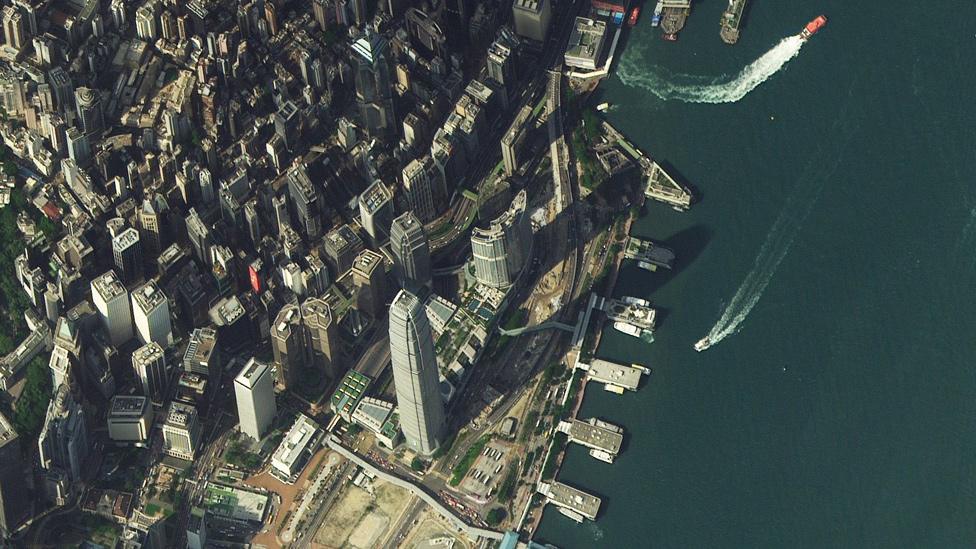UK firms propose low-cost satellite radar
- Published
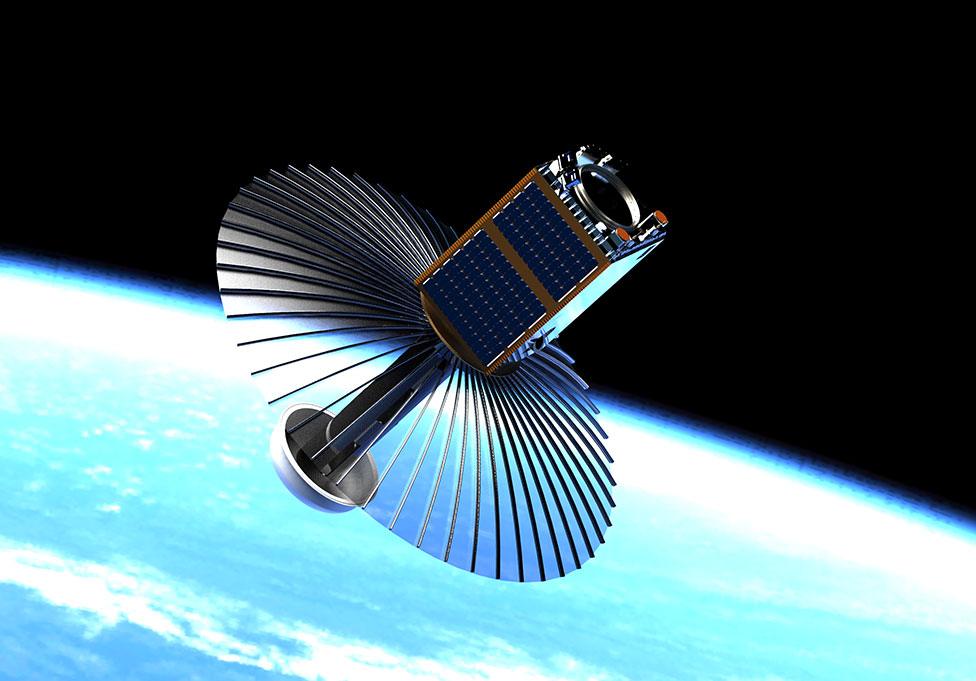
The CarbSAR concept could fly as a demonstration in 2021
Two British companies are to push forward with the development of an ultra-low-cost radar satellite.
Surrey Satellite Technology Ltd, external and Oxford Space Systems, external hope the work will lead to a demonstration flight in 2021.
The mission would marry OSS's novel antenna design with SSTL's expertise in small satellite systems.
Space radar's unique selling point is its ability to sense the ground in all conditions - day or night, and no matter the amount of cloud in the sky.
Traditionally, the satellites that have operated in this field have been big and expensive, but, with the falling price and miniaturisation of electronics, new approaches are becoming possible.
Finnish company Iceye, external and American start-up Capella Space, external are already flying small pathfinders, and expect eventually to launch constellations of their radar spacecraft.
The British pairing would like to join the fray.
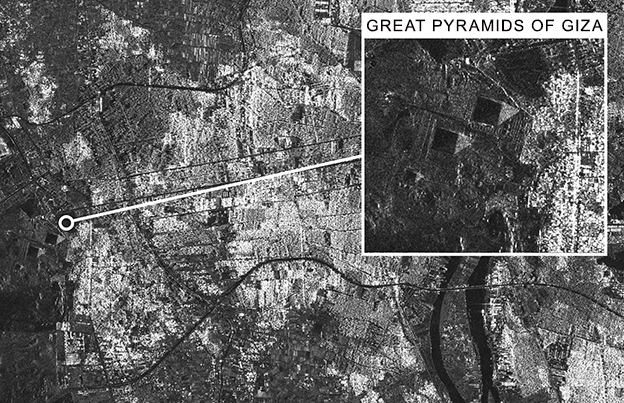
Radar senses the ground in all weathers, day and night
"There's a lot of interesting stuff taking place at the moment and we'll have to see how it all plays out. We're all taking a slightly different approach," said Andrew Cawthorne, SSTL's director of sales and business development.
OSS is working on a "wrapped rib", carbon-fibre antenna that can be stowed in a very small volume for launch but then sprung into shape once in orbit. This antenna would transmit (via a smaller inner-structure) and receive the radar pulses that are used to image the surface of the Earth.
SSTL has helped pioneer the development of small satellites and has an ultra-low cost variant it calls Carbonite. So far, this platform has only been launched with camera systems that take still and moving imagery in optical bands (the light we detect with our eyes).
But SSTL wants now to put a radar payload in the Carbonite chassis, or bus.
"We have this concept now for CarbSAR, which will take the latest deployable antenna technology from OSS and couple it with what we've been doing on the electronics and avionics side," said Andrew Cawthorne.
SSTL launched a radar satellite in 2018 called NovaSAR-1. This weighed in at 450kg, but the company said at the time the payload, or brains of the spacecraft, could fit in a much smaller package. CarbSAR would be that smaller package.
The development work is being supported by a grant from the UK's National Space Technology Programme.
Jonathan.Amos-INTERNET@bbc.co.uk, external and follow me on Twitter: @BBCAmos, external
- Published28 January 2019
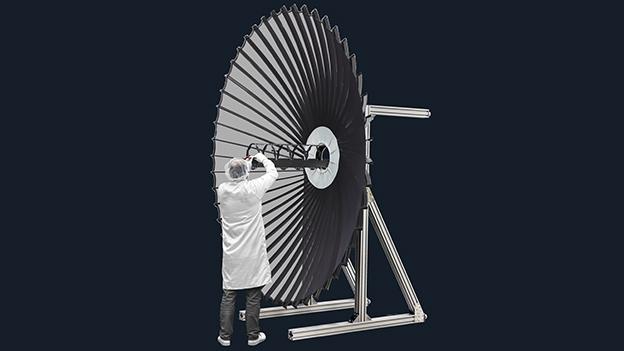
- Published23 November 2018
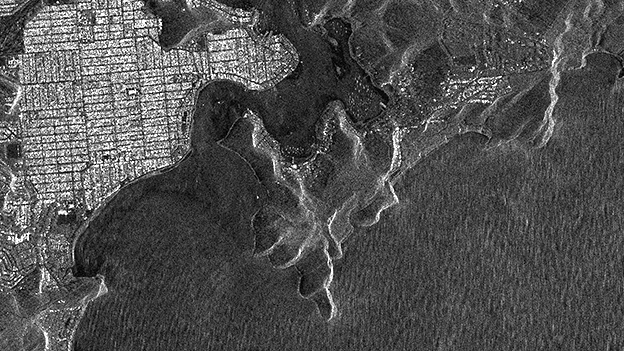
- Published17 January 2018
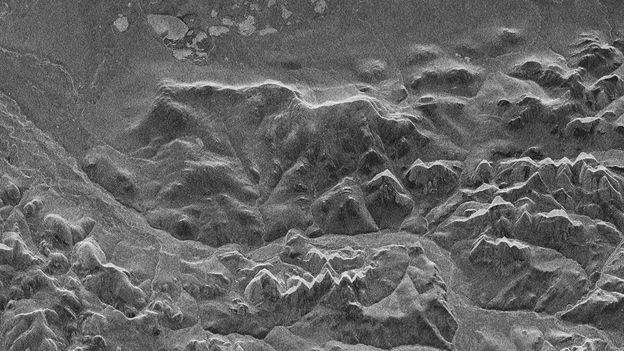
- Published16 April 2018
- Published30 May 2017
